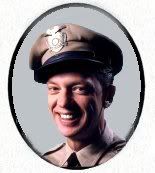How about when a woman rushes to the train station to meet her long-lost lover? They kiss and she tastes coffee, or bourbon or peppermint, or even, God forbid garlic? How is she going to react? It makes a difference.
It's fun to come up with unusual ways to describe the five senses. Instead of saying, "Tom Barton had the sprinkler going, watering his lawn," we say, "As Tom and I talked I heard the kissing sound of a sprinkler from someplace nearby." Can you hear it? How about this one:
"His words came out in a rough string, like pebbles from a rusty tin can."
Want to show how scared a young boy is? "Freckles stood out on his pale face like coal on a snow mound." or "The night was dark and beautiful, like diamonds on black velvet." Yes, those last two are from my books - and I must say I rather like them.
Use you imagination - always show don't tell and your readers will keep turning pages.
What do you mean, show, don't tell? Easy:
"Bob Johnson stood on the edge of the cliff looking at the angry sea below him. He was afraid."
"Bob Johnson dug in with his toes, wavering at the edge of the cliff. He watched the sea churn below him. The acrid smell of sweat blossomed his on body. Nausea rose in his gut and he tasted last night's bourbon. He clenched his teeth and he heard a voice from beneath the waves calling to him, telling him to jump, jump, jump."
Hey, I even managed to use all five senses in that sentence!
felt his toes
saw the ocean
smelled himself
tasted booze
heard the sea
And, while we're talking words, do be specific. Nothing brings your words alive so well, beside the five senses as specificity.
Bill doesn't just jump into his car, he jumps into a red Corvette. His hair isn't brown, it's coffee-colored. Sally's hair looks like fresh butterscotch pudding. When he arrives at Sally's place he doesn't just notice she's wearing his favorite sweater set - nope, she's wearing his favorite sky blue cashmere twin set. Be specific and you'll paint a better picture for your reader.
I trust you have a thesaurus so you can vary your words. I personally own four. Well, I like words and they are my business. I also own a color thesaurus and it's one of the most valuable tools I own. So I don't have to use the old tired "tomato red." Nope - how about signal light read, the color of a sequoia, or paprika. Are her lips just plain old red or are they the color of ripe raspberries, freshly harvested cranberries or current. See the possibilities? If you aren't lucky enough to own a color thesaurus make one of your own. Every time you see an unusual color used, write it down and pretty soon you too will have a character in a dress that's not just yellow, but the color of a phone book, Hollandaise sauce or Galliano.
Of course you don't want to go too overboard. I'd rather see eyes that are flame-blue than the color of lizard's belly. You can spend hours finding new and unusual words, but you'll only succeed in confusing your reader. If he has to stop and try to remember the color of a holly leaf, you've lost him. He may put down your book, not pick it up again and worse still - never buy another one. Nope, it's better to simply use emerald or forest. I've always wanted to use a color of the belly of bull frog but I know that's going too far.
Carlene Rae Dater has been a writer of both fiction and non-fiction for over 25 years and has been published in a variety of genres. Writing, reading and talking about mysteries is her passion. Visit her mystery blog at: http://www.themysterystartshere.com or view her published books at: http://www.silveradopublishing.com
Article Source: http://EzineArticles.com/?expert=Carlene_Rae_Dater



















